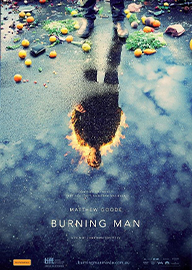Piku
- 7.6
- Drama
- 2015
- 2h 3m
- 16+
an Indian comedy-drama directed by Shoojit Sircar that stars Deepika Padukone as Piku, Amitabh Bachchan as her aging father Bhaskor Banerjee, and Irrfan Khan as Rana, the owner of a taxi service. The story revolves around the quirky, endearing relationship between Piku and her father, who is obsessed with his health and bowel movements. Together, they embark on a memorable road trip from Delhi to Kolkata, accompanied by Rana, who becomes an unexpected companion in their journey. The film brilliantly explores themes of familial duty, generational differences, and the bond between a father and daughter, while offering humor and heartfelt moments.













Comments
0Reviews
0Summery
1Please sign in to comment.
Please sign in to review.
Piku (2015) is a heartwarming and unique Indian comedy-drama that explores the dynamics of family relationships, particularly the complex bond between a father and daughter. Directed by Shoojit Sircar, the film stars Deepika Padukone as Piku, a devoted yet strong-willed daughter, Amitabh Bachchan as Bhaskor Banerjee, her eccentric and hypochondriac father, and Irrfan Khan as Rana Chaudhary, a travel company owner who becomes entangled in their lives. Set against the backdrop of a memorable road trip from Delhi to Kolkata, Piku is more than just a journey on the road; it's a journey of emotions, self-discovery, and acceptance, blending humor and drama in a way that captivates the audience.
At the center of the story is Piku Banerjee, a young, independent architect juggling her demanding career with the responsibilities of caring for her aging father. Bhaskor Banerjee, a widower, is a lovable but stubborn man obsessed with his health, particularly his digestive system, which dominates their daily lives and leads to many hilarious yet frustrating moments. Bhaskor is candid, childlike, and extremely dependent on Piku, who navigates his demands with a mix of irritation and compassion. Their relationship is portrayed with both lightness and depth, with Piku’s fierce devotion to her father serving as a testament to the unconditional love within families. However, her father's self-centeredness prevents her from enjoying her own life fully, and she struggles with her identity outside of her role as a caretaker.
The turning point in their lives comes when they embark on a road trip to Kolkata, Bhaskor's ancestral home, after he insists on traveling by car instead of taking a flight. Enter Rana Chaudhary, the reluctant driver and owner of a small taxi company who, in an attempt to keep his business afloat, ends up driving them all the way to Kolkata. The road trip becomes a catalyst for change, not only strengthening the bond between Piku and her father but also subtly kindling a connection between Piku and Rana. As they encounter challenges along the way, Bhaskor’s endless complaints and unconventional beliefs about health offer moments of comic relief, while Piku’s vulnerability and resilience come to the forefront, showcasing her struggle with her father's eccentricities.
One of Piku's most appealing qualities is its realistic portrayal of family dynamics, moving away from melodrama and instead grounding its characters in everyday experiences and relatable flaws. The film highlights the nuances of caregiving, the sacrifices family members make for each other, and the toll it can take on individual lives. Deepika Padukone’s performance as Piku is nuanced and authentic, capturing the simultaneous love and exasperation she feels toward her father. Amitabh Bachchan as Bhaskor brings both humor and depth to his character, playing an aging man clinging to his principles, while Irrfan Khan’s subtle, grounded portrayal of Rana offers a counterbalance to the father-daughter tension, providing moments of peace and introspection throughout the film.
Piku is a beautifully crafted film that resonates with its audience on an emotional level, weaving humor and pathos together seamlessly. Its screenplay, penned by Juhi Chaturvedi, is sharp, witty, and filled with moments that capture the essence of familial bonds, cultural quirks, and individual personalities. The cinematography, capturing the journey through India’s varied landscapes, complements the story’s themes of movement, change, and nostalgia. Music by Anupam Roy enhances the film's emotional texture, adding a soulful layer to the narrative. Ultimately, Piku is a refreshing reminder that family relationships are not always picture-perfect but are grounded in the beauty of flawed, real-life connections.
In the end, Piku is not just about a road trip; it’s a journey into the heart of family ties, sacrifice, and self-discovery. The film’s charm lies in its ability to make the mundane profound, turning daily routines, conflicts, and quirks into a heartfelt exploration of love, duty, and identity. The narrative leaves viewers reflecting on their own family bonds, the push and pull between duty and personal freedom, and the delicate balance that sustains relationships. With outstanding performances, a memorable story, and a heartfelt message, Piku is a gem in Indian cinema, celebrating the simple, chaotic, and beautiful aspects of life.